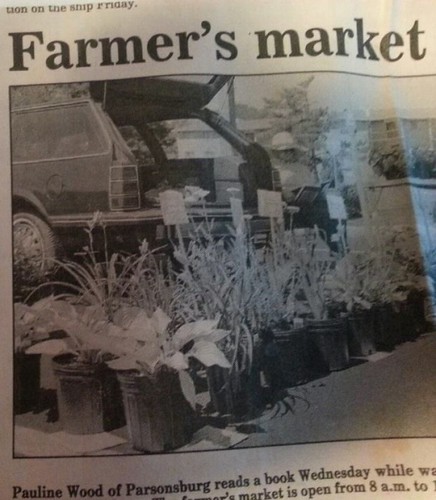My mom raised five kids, taught high school chemistry for 15 years and then retired back to the family farm in 1986. Her new life on the farm depended on the Salisbury, MD farmers market where she sold daylilies. The farmers market, just one of 8,000 or more markets listed in USDA’s National Farmers Market Directory, gave her the opportunity she needed to start her own business.
Each Saturday she loaded up her station wagon with plants and drove into town, displaying the lilies by color. When she wanted to expand her plant offerings, my brother built her a small greenhouse. She became known as the farmers market’s Flower Lady.
A few years later, my brother started his own greenhouse business at the farm after the nursery company where he was a grower could no longer provide health insurance. Based on the economic success our mom experienced at the farmers market, he bought a used van and added herbs and perennials to his market offerings. Today my brother operates five greenhouses, selling wholesale and retail with a large delivery truck. He still retails his plants five days a week at area farmers markets in three different towns.

We often hear that the cornerstone of the American economy is small businesses. And, for agriculture-based operations like his, farmers markets are the bedrock that small businesses depend on to be economically viable. In fact, 93 percent of small, family owned farms rely on direct-to-consumer marketing as part of their income. Without that first stepping stone, my brother wouldn’t have been able to connect with customers immediately, build his business and make a living doing what he loves.
Many of many of my brother’s customers still ask about my mom—even though she stopped selling at the market decades ago so she could focus on helping him behind the scenes in the greenhouses. For my family, farmers markets provided a retirement life for my mom, a viable business for my brother and a connection from the community to our family farm.

